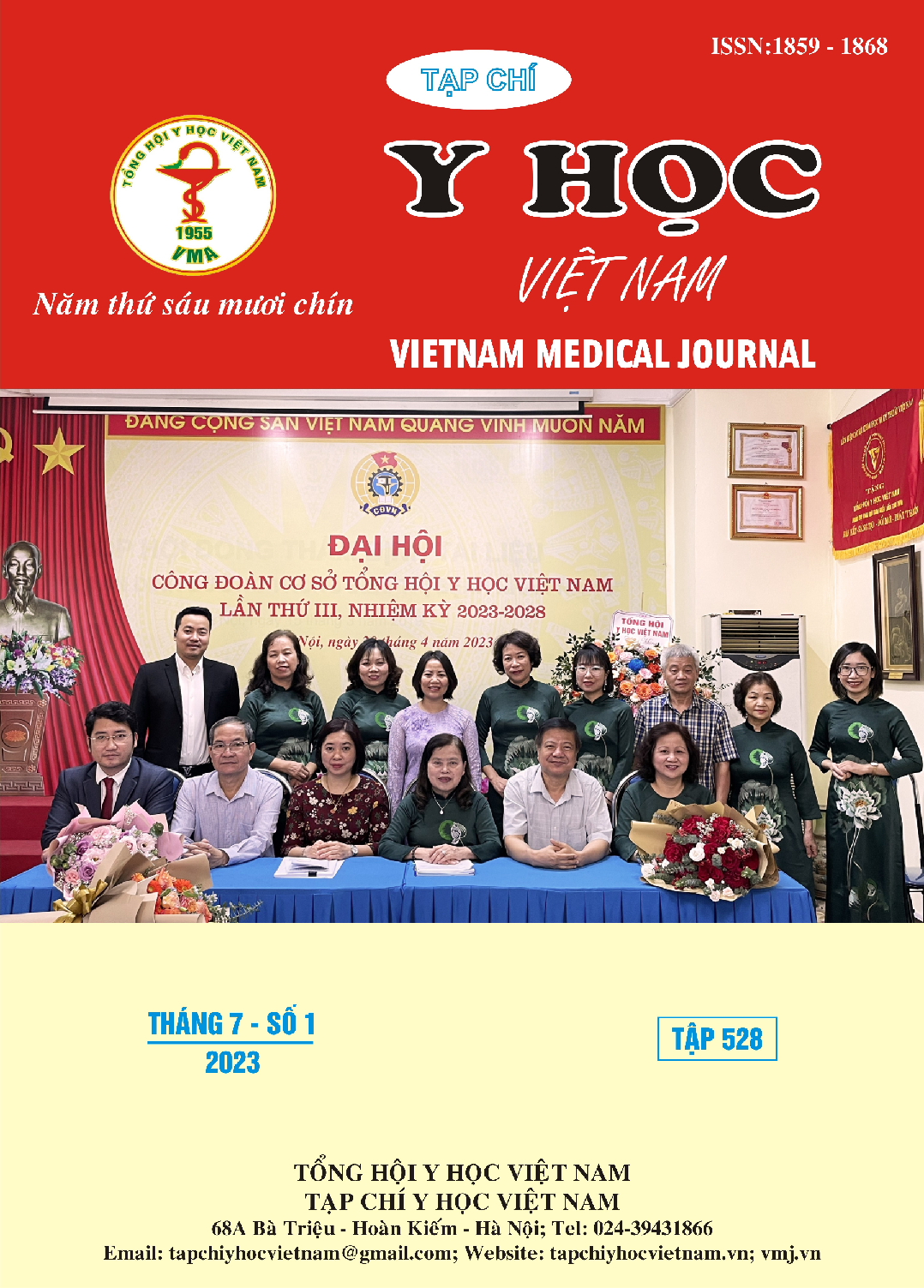THE NEED FOR SOCIAL WORK SERVICES OF INPATIENTS AND SOME INFLUENCING FACTORS AT MEDICAL HOSPITALS CENTRAL TRADITIONS 2023
Main Article Content
Abstract
Objective: Describe the social work service needs of inpatients at the National Hospital of Traditional Medicine in 2023. Research methodology: Cross-sectional design with analysis, combining quantitative with qualitative. The quantitative study used a 5-level Likert scale to assess the need for social work services, with a total of 264 inpatients selected to participate in the study. Qualitative research deliberately selects subjects to conduct in-depth interviews, group discussions on factors affecting the demand for social services. Use SPSS 20.0 software to describe GPA, standard deviation, use testing when squared to find out relevant factors. Results: The rate of demand for instructions and advice on general information on medical examination and treatment (KCB) is very high from 84.8% - 93.6%; the highest in supporting procedures for transfer / discharge of treatment facilities 93.6%; consulting treatment costs, health insurance policies (health insurance) at the same rate of 93.2%. The rate of demand for guidance and support for medical examination procedures/procedures reached a high rate of 92.8%. The rate of demand for communication and awareness services is from 91.3%-93.9%; the highest level of consultation on treatment plans, progression and prognosis of the disease is 93.9%; The adverse event information of the drug is 92.4%. However, qualitative research results show that the negative effects on the demand for social care services of NBNT are due to the attitude and communication skills of medical staff at hospitals. Conclusion: Hospital leaders need to take appropriate intervention measures such as: Strengthening counseling - psychological counseling for patients (NBs) who are women, elderly patients; Participate in NB council meetings to capture NB's aspirations and communicate health education to them
Article Details
Keywords
Demand for social work services; Social work; Inpatients; Central Hospital of Traditional Medicine.
References
1. WhitakerT, Weismiller and Clark & Wilson. Assuring the sufficiency of a Front Line Workforce: A National Study of Lincensed, National Assdciation of Social Workers. Washington DC. 2006.
2. Phạm Tiến Nam và cộng sự. Nhu cầu và khả năng cung cấp dịch vụ công tác xã hội cho bệnh nhân ung thư tại Bệnh viện K năm 2017. Hà Nội.: Trường Đại học Y tế công cộng; 2017.
3. Bệnh viện Y học cổ truyền trung ương. Báo cáo kết quả hoạt động năm 2021 và Phương hướng hoạt động năm 2022. 2021.
4. Lưu Thị Thắm. Nhu cầu và khả năng cung cấp dịch vụ công tác xã hội đối với người bệnh tại Bệnh viện Hữu Nghị Việt Đức năm 2018. Hà Nội: Trường Đại học Y tế công cộng; 2018.
5. Inken Padberg. Social work after stroke: identifying demand for support by recording stroke patients’ and carers’ needs in different phases after stroke. BMC Neurology. 2016.
6. Trần Ngọc Yến (2018). Nhu cầu hỗ trợ công tác xã hội của người bệnh điều trị nội trú và một số yếu tố liên quan tại khoa tim mạch và đái tháo đường bệnh viện đa khoa trung tâm Tiền Giang năm 2018. 2018.
7. Linda Luxon. Infrastructure – the key to healthcare improvement. Future Healthcare Journal. 2015:4-7.
8. Vũ Thị Thanh Mai. Nhu cầu tư vấn thông tin điều trị và một số yếu tố liên quan của bệnh nhân ung thư tại bệnh viện K năm 2017. Tạp chí Khoa học Nghiên cứu Sức khỏe và Phát triển. 2017;2:102-9.
9. K. H. Nguyen, A. N. Trivedi, M. B. Cole. Receipt of Social Needs Assistance and Health Center Patient Experience of Care. American journal of preventive medicine. 2021;60(3):e139-e47.
10. Inken Padberg, Petra Knispel, Susanne Zöllner, Meike Sieveking, Alice Schneider, Jens Steinbrink, et al. Social work after stroke: identifying demand for support by recording stroke patients’ and carers’ needs in different phases after stroke. BMC Neurology. 2016; 16:111.


